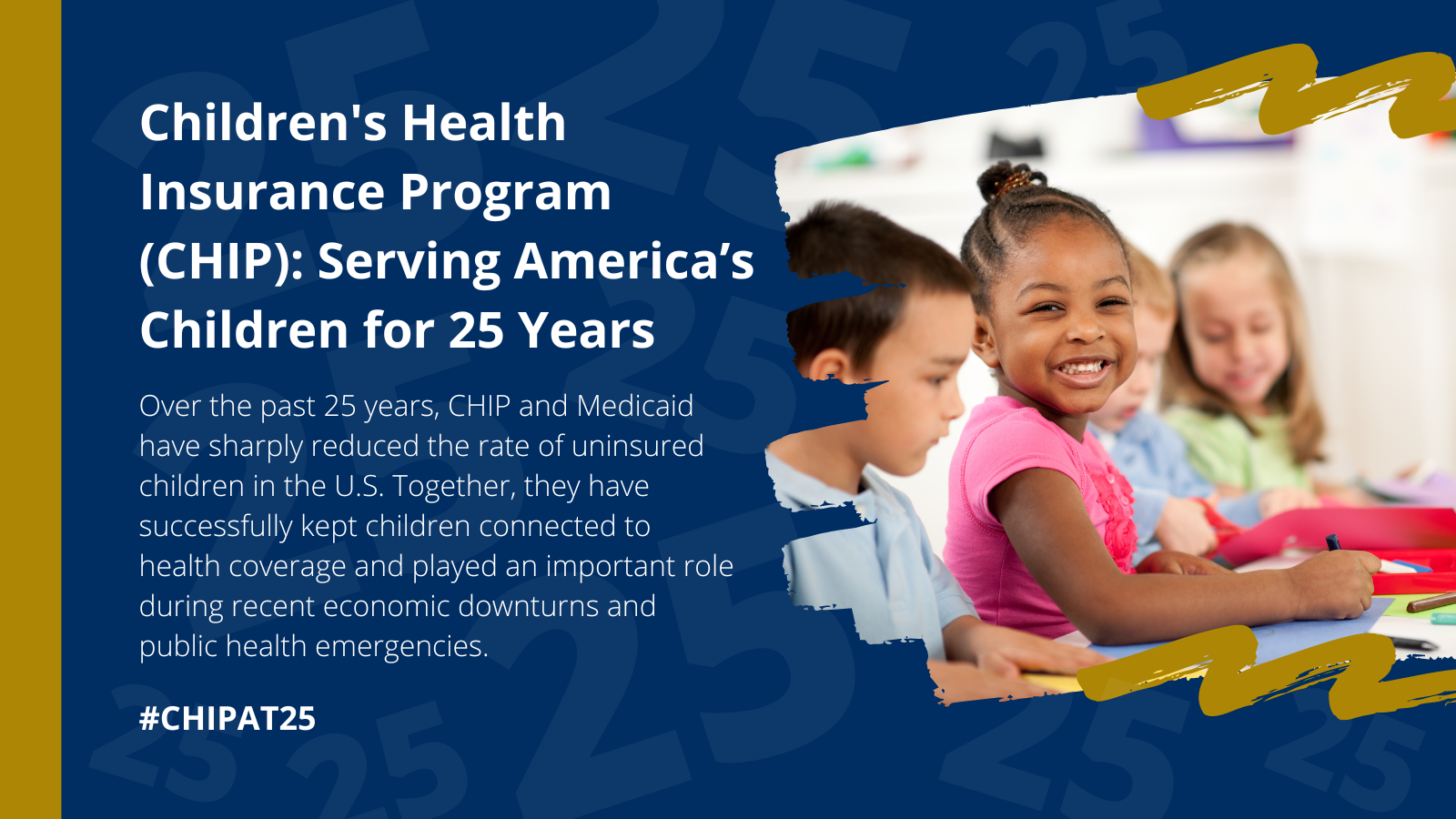Medicaid
-
Transparency in Medicaid Managed Care: Are the Times A-Changin’?
If the phrase “transparency in Medicaid managed care” sounds like an oxymoron, that’s because in many states it is. Finding information on the performance of individual Medicaid managed care organizations (MCOs) for children and families and other Medicaid beneficiaries on state Medicaid agency websites can be challenging. This is more than unfortunate because in the…
-
Bipartisan Safer Communities Act Greenlights Updated School-Based Medicaid Guidance, TA Center and Grant Funding
On June 25, President Biden signed the Bipartisan Safer Communities Act into law. While a high-level overview of the legislation has previously been detailed on SayAhhh!, with the language now enacted into law, we thought it would be helpful to drill down into more detail on the provisions relating to Medicaid and CHIP and school-based…
-
New Brief: Postpartum Medicaid Extension An Opportunity to Improve Maternal and Child Health, But Impact Limited Without Medicaid Expansion
The U.S. is facing a worsening maternal mortality crisis that disproportionately affects pregnant people of color, and research suggests that the Supreme Court decision in Dobbs v. Jackson Women’s Health Organization overturning the constitutional protection of access to safe and legal abortions could further exacerbate current racial, economic and social inequities in maternal and infant…
-
Opportunities to Support Maternal and Child Health Through Medicaid’s New Postpartum Coverage Extension
Introduction The new state option to extend Medicaid and CHIP coverage for one year after the end of pregnancy is a transformational opportunity for states to support improved maternal and infant health in the year following birth. It also offers state Medicaid leaders a focused moment to use the successful implementation of the new policy…
-
CHIP: Serving America’s Children for 25 Years
In its 25-year history, the Children’s Health Insurance Program (CHIP) has established itself as a critical piece of the federal-state response to children’s health care needs. CHIP, signed into law on August 5, 1997, was created to build on the success of Medicaid by giving states the opportunity to receive enhanced federal matching funds to…
-
Mississippi Center for Justice Presents CCF with Distinguished Partner Award
Georgetown University Center for Children and Families (CCF) received the Mississippi Center for Justice (MCJ) Distinguished Partner Award last month. During the award’s ceremony, MCJ Health Law Director Linda Dixon commended CCF for its collaborative style, expertise, and willingness to go the extra mile. “The Mississippi Center for Justice is grateful for our longstanding partnership…
-
An Advocate’s Guide to Medicaid Managed Care Procurement
2022 is a big year for Medicaid managed care procurements. Procurements are already underway in California, Iowa, and Nebraska with awards scheduled to be announced in August. New Mexico is scheduled to launch its procurement in September, and three more states — Florida, Georgia, and Texas — are expected to issue Requests for Proposals (RFPs)…
-
A Guide for Health Care Advocates: Medicaid Managed Care Procurement
Overview Most Medicaid beneficiaries in most states are enrolled in managed care organizations (MCOs). (See text box, “What’s a Medicaid MCO?”) State Medicaid agencies contract with MCOs to assemble networks of health care providers to furnish services to program beneficiaries and protect them from medical debt. Simply put, if an MCO does not do its job,…
-
Infants Covered by Medicaid and CHIP Likely Hardest Hit by Formula Shortage, WIC a Key Resource
Before newborns can try solid foods, breastmilk or infant formula are the sole sources of nutrition to keep them fed. This is why the infant formula shortage has added yet another layer of stress on families with infants. As many families continue to struggle to access formula, a new brief from the Kaiser Family Foundation…
-
New Urban Institute Analysis Underscores Importance of Continuous Medicaid Coverage Protection for Kids
A new brief out this week from The Urban Institute confirms what we have suspected — the Medicaid continuous coverage provision has halted the increase in uninsured children that we saw during the Trump years. (As SayAhhh! readers know, no one can be involuntarily disenrolled during the federally declared public health emergency as a consequence…
-
Biden Administration Releases Badly Needed Maternal Mortality Strategy as Dobbs Decision Could Worsen Crisis
The U.S. is in the midst of a maternal mortality crisis: rates of maternal death are rising and Black women continue to die from pregnancy-related causes at more than twice the national average. Unfortunately, the Supreme Court decision in Dobbs v. Jackson Women’s Health Organization to allow states to ban abortion could make the maternal…
-
New Data from CMS Shows Mental Health Services for Children Continue to Lag Behind Pre-Pandemic Levels
This week, the Centers for Medicare & Medicaid Services (CMS) released an update to its Medicaid and CHIP COVID-19 data snapshot with new data through January 2022. Unfortunately, as highlighted in the snapshot, while the number of mental health services provided to adults during the public health emergency nearly returned to pre-pandemic levels, the rate…
-
South Dakota’s Journey to Medicaid Expansion: An Update
South Dakota is still on track to close its Medicaid coverage gap. Voters in the state are set to decide whether to expand Medicaid through ballot initiative this November. Legislators opposed to expansion, recognizing the success of ballot initiatives to expand Medicaid in other states, made an attempt to prevent expansion – but this ended…
-
Senate Releases Bipartisan Safer Communities Act, Includes Medicaid Mental Health Provisions
[Editor’s Note: The Bipartisan Safer Communities Act has since passed the Senate and the House and was signed into law by the President on Saturday, June 25th.] As we wrote about last week, the Senate has been actively working to advance an agreement on a gun safety bill that includes a number of provisions related to mental health.…
-
Congress Focuses on Mental Health, Medicaid Gains Attention
This week has been a busy one on Capitol Hill as it relates to congressional efforts on mental health. On Sunday, a bipartisan group of twenty Senators announced they had reached an agreement on a framework related to gun safety including investments in child and family mental health services. On Wednesday, the Senate Finance Committee…
-
New Georgetown CHIR Case Study Report Examines Policies to Expand Primary Care Access in Rural New Mexico
By Maanasa Kona, Jalisa Clark, Megan Houston, and Emma Walsh-Alker with the Georgetown University Center on Health Insurance Reforms Primary care is a critical tool to prevent illness and death and to improve the equitable distribution of health care in populations. However, access to this important source of care is lacking, especially for many underserved…
-
CMS Gives States an Extra Year to Spend ARPA Home and Community-Based Services Funds
As we’ve previously written about here on Say Ahhh!, the American Rescue Plan included a number of provisions providing new opportunities for state Medicaid programs including temporary funding to enhance, expand, and strengthen home and community-based services for individuals covered by Medicaid. Under a CMS announcement made last week, states now have an extra year…
-
Take the Child Health Dashboard Tour
Since we debuted the Dashboard Library, we’ve been keeping our eyes on state Medicaid agency websites and are pleased to announce that we’ve discovered quite a few more. The dashboards we’ve added to the list vary widely in content and presentation style, ranging from slides to interactive workbooks. Unfortunately, none of the dashboards that we…
-
CCF Submits Comments to Proposed Rule Fixing the Family Glitch
On June 2, 2022, CCF submitted public comments to the Internal Revenue Service related to a proposed rule which would finally fix the “family glitch.” As my colleague Tricia Brooks recently explained, the family glitch makes many children and other dependents in families offered unaffordable employer-based family coverage ineligible for premium tax credits to purchase…





















